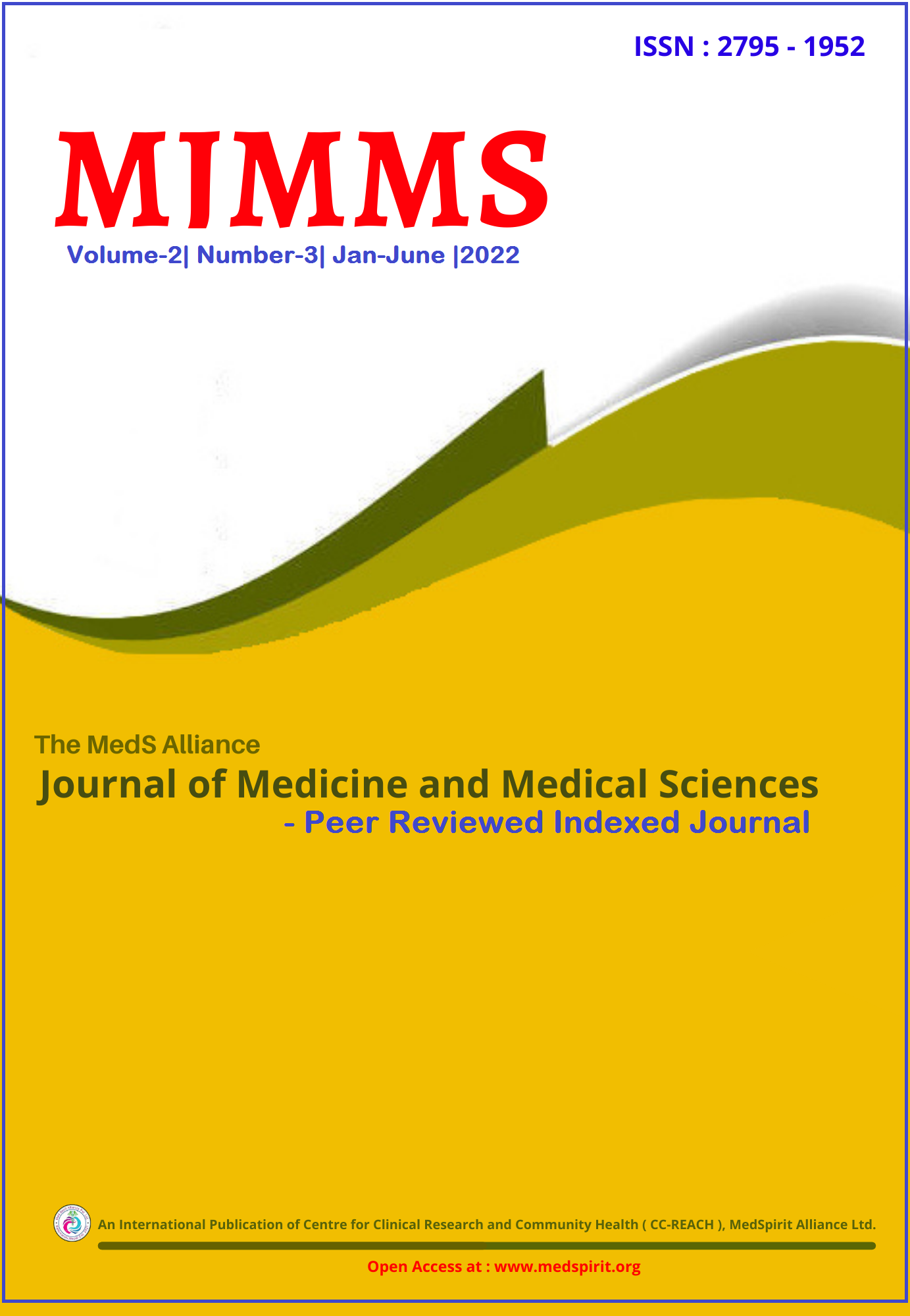Exemplification of ABO Blood Groups in Patients with Diabetes Mellitus
DOI:
https://doi.org/10.3126/mjmms.v2i3.47752Keywords:
Blood groups, Diabetes mellitus, Rh factorAbstract
INTRODUCTION: Diabetes Mellitus and blood groups are interrelated. The relationship between ABO blood groups and disease susceptibility has generated a concern. The identification of a positive relationship between DM and blood groups could indicate higher susceptibility to diabetes and a negative relationship could indicate protection from diabetes. Therefore, the objective of the study was designed to exemplify ABO blood groups in Patients with Diabetes Mellitus.
MATERIALS AND METHODS: The study was conducted at Ram Janaki Hospital and Swastika Health Care Hospital, Janakpurdham from September 2017 to March 2018.The record of the patients from the medicine OPD in both the hospitals was identified and relevant data were extracted. The data was recorded from the reports of the patients with confirmed DM patients attending Medicine department.
RESULTS: The majority of the 579 diabetic patients were in the 40-60 year old age group. The most predominant blood group was B (251; 43.4 %), followed by AB (137; 23.7 %), O (125; 21.5 %), and A (66; 11.4 %) respectively. In comparison to male diabetics, less than half (44.1%) of female diabetics had blood group B. (42.7%). Similarly, males (13.0 %) were found to have more blood group A than females (9.8%). In diabetic individuals, the relationship between blood group and age (p=0.652) and sex (p=0.659) was shown to be insignificant. The majority of the patients (94.3%) had Rh positive blood groups, whereas the other had Rh negative blood types (5.7%). There was no correlation between blood group Rh factor and age group (p=0.817) or as well as with sex (p=0.333) among diabetic patients.
CONCLUSIONS: Diabetic patients were more likely to have blood type B, while diabetics were less likely to have blood group A. It implies that diabetes is linked to ABO blood types, and that those with Group-B are more likely to develop the condition. Blood group could be a risk factor, and knowing it can aid with disease evaluation and screening.
Downloads
Downloads
Published
How to Cite
Issue
Section
License

This work is licensed under a Creative Commons Attribution-NonCommercial 4.0 International License.




